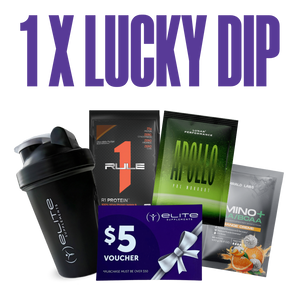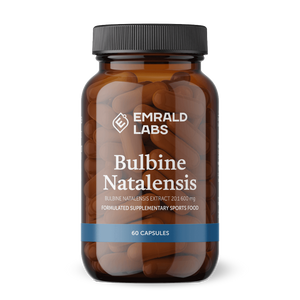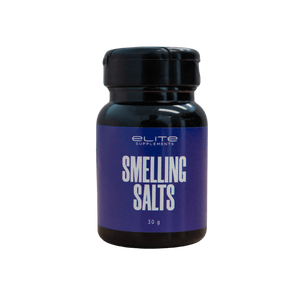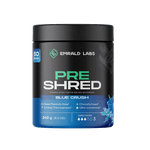
Collection: Amino Acids
Amino Acid Supplements
Amino Acids, BCAAs, and EAAs are more than just buzzwords in the supplement space - these ingredients are crucial for recovery and overall health. Read on to learn more about Amino Acid Supplements!
What are Amino Acid Supplements?
Amino acid supplements are dietary supplements that contain one or more of the 20 different types of amino acids that are essential for protein synthesis in the body. These supplements come in various forms, including pills, powders, and liquids, and they are designed to provide people with an easy and convenient way to increase their intake of amino acids. Amino acids are important for many bodily functions, including muscle growth and repair, enzyme and hormone synthesis, and overall health.
What are Amino Acids?
Amino acids are the building blocks to making a protein. There are 20 amino acids total, and each amino acid is required for different pathways, functions and purposes.
The body uses amino acids to build and repair muscle tissue. When people exercise, they can create small tears in their muscle fibers, which need to be repaired in order to build new muscle mass. Amino acids are essential for this process, as they provide the building blocks that the body needs to create new muscle tissue. Branched-chain amino acids (BCAAs) are particularly important for muscle growth and recovery, as they help to stimulate muscle protein synthesis and reduce muscle breakdown. Studies have shown that BCAA supplements can help to increase muscle mass and strength, especially when combined with resistance training.
Amino acid supplements can also help to reduce muscle soreness and fatigue after exercise. This is because they can help to reduce the breakdown of muscle tissue that occurs during exercise, which in turn can help to reduce inflammation and promote recovery. Studies have shown that BCAA supplements, in particular, can help to reduce muscle soreness and improve muscle function after exercise.
In addition to their benefits for muscle growth and recovery, amino acid supplements may also have other health benefits. For example, some amino acids are important for the production of neurotransmitters, which are chemicals in the brain that help to regulate mood and behavior. Tryptophan, for example, is a precursor to serotonin, a neurotransmitter that is associated with feelings of happiness and well-being. Supplementing with tryptophan or other amino acids that are involved in neurotransmitter production may help to support mood and cognitive function.
Amino acid supplements may also have benefits for people with certain health conditions. For example, people with liver disease may have impaired amino acid metabolism, which can lead to a deficiency of certain amino acids. Supplementing with these amino acids may help to improve liver function and reduce the risk of complications. Similarly, people with diabetes may benefit from amino acid supplements, as they can help to improve insulin sensitivity and blood sugar control. Be sure to consult with a healthcare professional before using amino acids to address any health conditions.
Amino acids also play an important role in immune function. They are involved in the production of antibodies, which are proteins that help to protect the body against infections and other harmful invaders. Supplementing with certain amino acids, such as glutamine, may help to support immune function and reduce the risk of infection.
Another potential benefit of amino acid supplements is their ability to improve athletic performance. Some studies have shown that supplementing with BCAAs can improve endurance and reduce fatigue during exercise. This is thought to be because BCAAs are used by the body for energy production during exercise, which can help to spare glycogen stores and delay the onset of fatigue.
Amino acid supplements may also have benefits for people who are trying to lose weight or improve their body composition. This is because amino acids are important for muscle growth and repair, and muscle tissue is more metabolically active than fat tissue. By increasing muscle mass, people can increase their resting metabolic rate, which can help them to burn more calories even when they are not exercising. In addition, amino acid supplements may help to reduce appetite and improve satiety, which can make it easier to stick to a calorie-controlled diet.





































































